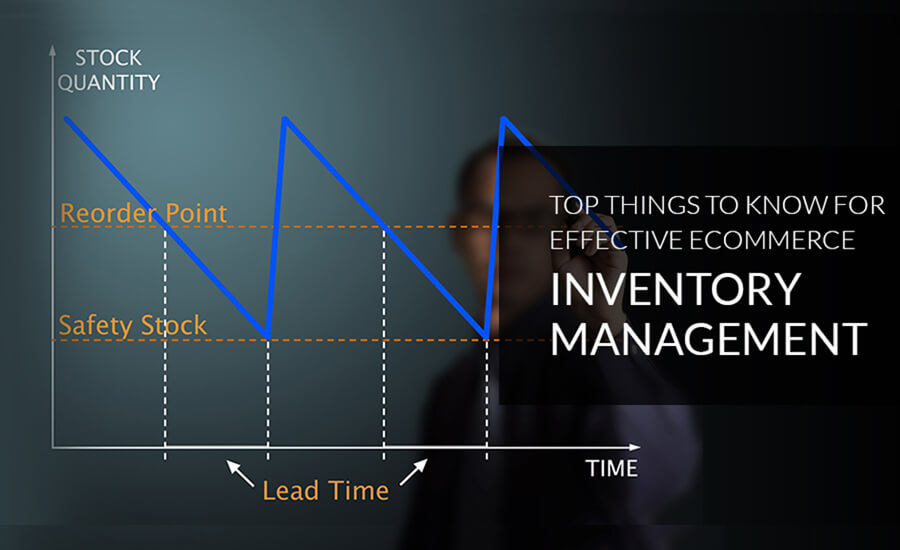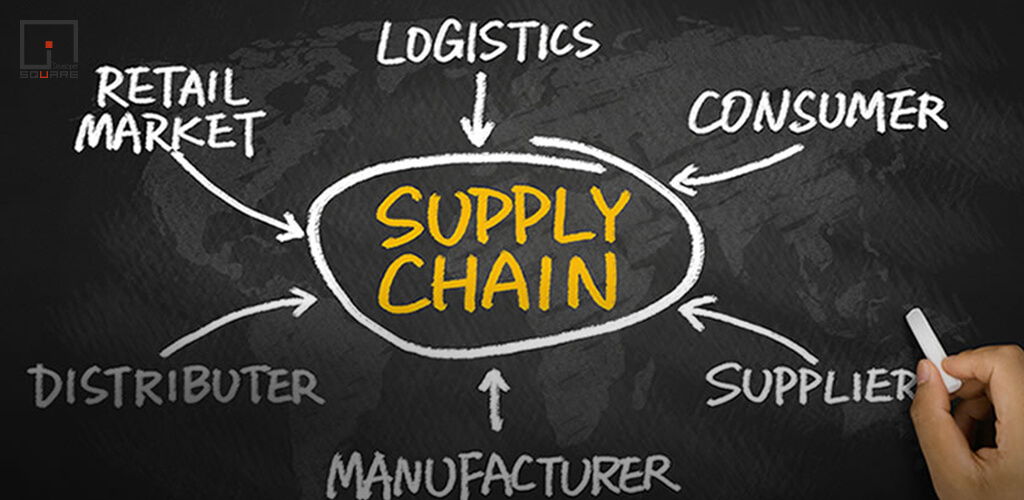 What is Inventory Management?
What is Inventory Management?
Inventory management is the process of careful planning and organizing of the products for a business. It involves management of both raw materials and the finished products that are ready for sale. An effective ecommerce inventory management system offers several functional features for the ease of doing business. For businesses, using multiple sales channels for their products, it is even more important to have an effective inventory management for ecommerce in place. Ecommerce inventory systems can reduce wastage and also lower operational costs, which every enterprise needs to carry and maintain stock.
Here are top things to know to effectively manage inventory for ecommerce businesses.
- To Provide a supply-demand Balance for the Inventory Process
- To Provide Safety Stock
- To Provide Geographical Specialization
- Separating Essential and Non-Essential Products
- Improving Inventory Forecasts for Business
- Using Just-In-Time Inventory Management for Ecommerce
- Inconsistencies in Product Sales and Product Availability across Multiple Stores
- Improperly Tracking the Supply Chain Management Process
- Not Focusing on Cost Factors
- Integrating Stores for Inventory and Products
- Integrating Warehouses for Inventory and Products
- Synchronizing Inventory and Products
Importance of Inventory and Inventory Management
Inventory is the necessary component of any business. Without the right products to sell at the right time, a business can't experience optimal growth. A vital part of inventory management is to ensure consistency of stock across all sales channels. By using ecommerce inventory management systems for their businesses, retailers can ensure that their sales outlets are well-stocked with the right products and at the right time.
Irrespective of the size of your business, you need a good ecommerce inventory system in place. Whether it is a small business growing too fast or an established online store, it needs an inventory supply chain management system. Ecommerce inventory management software can help businesses to avoid dead or excess stock. It can also reduce spoilage of products that have shorter shelf lives or expiry dates such as food, health supplements, makeup etc.
Inventory management has several important functions, such as –
- To Provide a Supply-Demand Balance for the Inventory Process
When you don't manage your inventory well, the result is excess stock. It also means your cash is tied up in stock with no immediate sale in sight. To make a small business grow or to keep the rising growth trajectory of your online retail business consistent, you need to assess all costs related to your inventory.Using a good ecommerce inventory software, it is easy to keep sight of all costs of carrying your stock. It then allows you to reduce these inventory costs and improve your cash flow. A balance of supply and demand means to replace or restock sold items and to clear out seasonal or promotional stock in a timely manner. - To Provide Safety Stock
Even though ecommerce inventory control helps to ensure a balance of supply and demand of products, there is also a need to maintain buffer stock of essential items as per the needs of your business. The buffer stock or the safety stock can be your finished goods of bestselling or essential items or necessary raw materials that you need for your core business.Through safety stock, you can ensure that a delay in the availability of one or more raw materials doesn't impact your sales. Access to safety stock also means that you have items ready for sale in case of a sudden or unexpected demand for a product.
- To Provide Geographical Specialization
Through ecommerce inventory management, businesses can utilize benefits from specific geographical locations. A certain location may provide lower cost of labor and another place may have a raw material or two more readily available than other areas.Cost of goods can also differ from one geographical location to the next. A good ecommerce inventory system can streamline costs through this simple yet very beneficial feature of stock management.
Managing Inventory for Ecommerce
With the advent of online shopping and continuous innovations in this area, the need for proper inventory management is greater than ever. With multiple sales avenues for ecommerce, the chances of errors in inventory management can be higher. But by using best practices, it is easier and even possible to control and properly manage inventory for ecommerce. There are many important aspects of inventory management, such as –
There are many important aspects of inventory management, such as –
- Constant monitoring of inventory is very crucial for businesses. Warehouse management system (WMS) helps distributors to access right information on stock availability. This lowers risks of overstocking and also reduces warehouse storage costs.
- Most businesses these days use some tracking system to manage inventory. It could be a barcode inventory management system or other inventory management software solutions. It could even be through simple spreadsheets or small business inventory management software – the purpose is effective inventory management for ecommerce or other businesses.
- Through the use of ecommerce inventory management, distributors or business owners can order inventory as needed, thus, eliminating the need for stockpiling. They can also earn discounts from suppliers by bulk ordering and cut costs of shipments through consolidated ordering of raw materials or finished goods. Such level of inventory accuracy is possible with the use of warehouse inventory management software or any good inventory management software.
- Separating Essential and Non-Essential Products
Every type of business has certain essential or core products that it sells consistently or all year round. Then there are also non-essential or non-core items that have seasonal sales such as festival decorations or holiday-specific food supplies.Through effective inventory management ecommerce, you can ensure there is never a shortage of the core items and non-core products are ready for sale during their seasonal demands or in lesser quantities all year round. - Improving Inventory Forecasts for Business
An effective ecommerce inventory system helps with accurate forecasting of supply and demand. Inventory forecasting is to know what the customer might need, in what quantities and when. This is possible through market research, demand pattern analysis and accordingly, the need to stock the goods.This is a complex process but one that is necessary for ecommerce. You can forecast demand using a comprehensive strategy that includes all data pertaining to your stock, your buffer stock, reorders for particular items and accordingly, the need for raw materials or final products.
- Using Just-In-Time Inventory Management for Ecommerce
Just-In-Time (JIT) is an inventory management practice that ensures efficiency. As the name suggests, JIT is an inventory solution where you order stock as and when you need it for your business. This negates the need for stocking inventory prior to a sale. It reduces warehouse costs and your cash flow is not tied up in inventory. But JIT only works when your sales forecasting is accurate.For businesses using JIT, forecasting is important to avoid losing potential sales. You need to maintain stock in multiple online stores as per your anticipated sales. By using any top inventory management software or an inventory control management software suitable for your business, you can sync your inventory needs in relation to your predicted sales. This way you can utilize the benefits of JIT and save significant operational costs.
Mistakes to Avoid for Managing Inventory
Ecommerce business ventures differ from traditional stores in terms of logistics and scale of operations. Without a proper inventory management system in place, sales forecasts can go haywire and excess stock can pile up. Even when you use a nice inventory control management software, mistakes in the supply chain are possible.
Here are some common inventory management mistakes – - Inconsistencies in Product Sales and Product Availability across Multiple Stores Even a slight error can result in overstocking or shortage of core products. With these errors, your ecommerce business may show an item in stock but in reality you might not have it. This can mean lost sales and customer dissatisfaction. Therefore, it is vital for a business to invest in inventory management software or tools that can streamline stock across all sales outlets.
- Improperly Tracking the Supply Chain Management Process Mistakes can happens when businesses track only a small part of their supply chain. Proper supply chain management not only means tracking raw materials or finished products and their stock. But it also means keeping check on customer demands, forecasting, changing buying habits of customers and how these factors affect your inventory needs and supply.

- Not Focusing on Cost Factors The pricing of raw materials automatically affects the cost of your final goods. It, in fact, impacts the whole manufacturing process. It is, therefore, necessary to keep tabs on pricing at each level of the business to ensure you don't underprice your final product. Pricing of the final good has to reflect all costs incurred during the procurement, storage, manufacturing and transportation of the product in question.
 Selecting the Right Inventory Management Software
Selecting the Right Inventory Management Software
You don't need just any good inventory management software but the right software for your business needs. Your business inventory management software must provide you all the solutions necessary for the nature of your product or your ecommerce retail store. The right inventory management solution can help to reduce your operation costs and consequently, improve your bottom line. A good inventory management software can benefit your business in many ways by performing important tasks, such as –
A good inventory management software can benefit your business in many ways by performing important tasks, such as – - Integrating Stores for Inventory and Products Most ecommerce businesses utilize different avenues of sales other than their own web store. If you sell your products through different ecommerce platforms such as Amazon or eBay, your inventory management software solution must provide you details of each product sold through each channel on one simple page. You must also be able to track sale of each product on multiple stores on a single screen or page through your inventory software.
- Integrating Warehouses for Inventory and Products For large scale retailers, the need to manage inventory across different warehouses in separate geographical locations is very significant. If warehouse integration is crucial for your business, your ecommerce inventory management software must be one that gives you a comprehensive view of inventory across all warehouse locations in one easy-to-view page.
- Synchronizing Inventory and Products But only store and warehouse integration is not enough for ecommerce. These systems must also sync well with your inventory across all your sales platforms. For this you will need inventory ecommerce software that can synchronize your stock on all storage locations and sales channels.
The Bottom Line –
Proper ecommerce inventory management is one of the essential components for business growth. Also, with the convenience of 24/7 shopping through online stores, ecommerce inventory control and management is more significant than ever before. It may seem like a daunting task but with the use of ecommerce inventory software and best practices, it is possible for ecommerce businesses to ensure that their stores are never out of stock.
Inventory management has many components and tools for businesses. You don't need them all but only select the ones that make sense for your ecommerce business. With the right inventory management system for your ecommerce venture, you can improve your business operations and continuously increase your profits.














